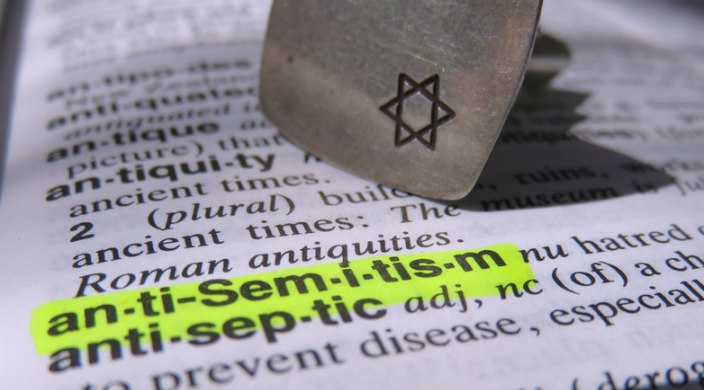
By Claudia Sachs, Richmond, VA —
When I first heard about the murder of eleven Jews at the Tree of Life synagogue in Pittsburgh, I was outraged, but not surprised. Part of me wanted to believe that events like these were exclusive to Pittsburgh. Here in Richmond, we have a Jewish community that seems to be thriving, and I usually feel welcome and part of the fabric of this city.
But I’ve noticed that for years my synagogue, like most of the synagogues in town, has hired a full-time security guard to protect us inside. I always thought those guards were a “worst case scenario” precaution–a deterrent. But if antisemitism continues brewing in this city, those security guards may end up saving my life.
I have now realized that I am not safe as a Jewish person in Richmond. I have planned my emergency exit route from my synagogue and predicted how I would quickly duck under a pew. How many more shootings will there need to be before I am too afraid to attend services at all?
As a high school sophomore in Richmond, my body has never physically been shot with a bullet, but my heart has been wounded by the ignorant antisemitic rhetoric and behavior of my peers.
A few months ago, I was having a conversation with a boy in Spanish class, and he jokingly told me to “take a shower.” I said “Why, do I smell?” He chuckled, “No Claudia, I meant the showers of the Holocaust.” I was furious, but these comments were all too common. Once, when I did well on a test, a classmate said, “You only got that because you’re Jewish.” He believed the myth that all Jews get good grades. Another student asked if I could smell better with my “Jew nose.”
Jewish stereotypes flood my life like a sign on my back that says “kick me.” When kids in school learn about Jews, they usually only study the Holocaust, so Jews are painted as a sad statistic of war and not human beings. As a result, kids grow up thinking that antisemitism is a joke.
These kids are not malicious; they are ignorant. They pass jokes and stereotypes around the middle schools, high schools, and communities in this city. Their insults are followed by phrases like “just joking,” or “chill.” They blame their victim for being over sensitive. Everything seems funny enough until the jokes find followers who continue to pass them around. And in 2018, those followers have started a pattern of turning to violence.
How can Richmond stop these “jokes” before they go too far? How can I ever feel safe in my synagogue, school, and community again?
The answer is education. Education about antisemitism comes first from self-motivation. People of all faiths should educate themselves about Judaism, visit synagogue services, and learn about the false stereotypes that are often forced upon the Jewish people.
The next step to eradicating antisemitic ignorance takes place in the classroom. Teachers must teach students how to recognize antisemitism. Yes, teachers need to teach about the Holocaust, but the Holocaust doesn’t define Judaism. Students also need to learn about the richness of Jewish history and traditions. If the kids at my school fully learned the humanity of Jews and why Jewish stereotypes spread, they would have thought twice before making a joke out of it.
The final step to saving Richmond from antisemitic hatred is education in peer groups. Students of all faiths must come together to stand up against antisemitism. Discussions about local antisemitism should flood lunch table conversations. People should feel free to ask questions and be curious. Children, teens, and adults must form one bulletproof safety shield to hatred.
After the events in Pittsburgh last week and the neo-Nazi march in Charlottesville last year, we know the plague of antisemitism is slowly circulating around Richmond’s schools, businesses, and communities. A mirror attack to Pittsburgh could be right around the corner if people remain ignorant. Education may be the only thing left that can save us all.
